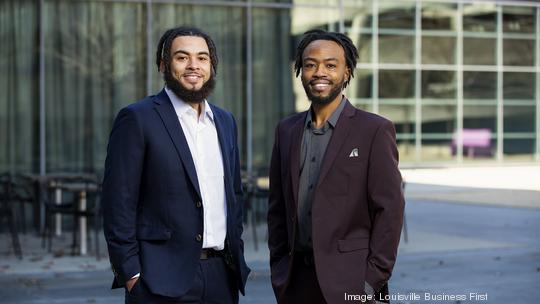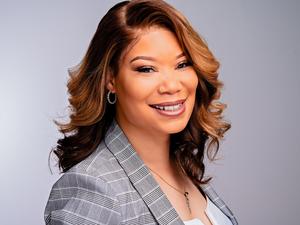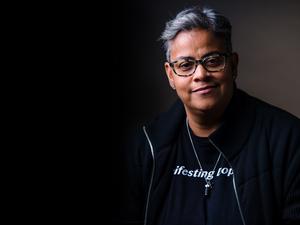
Louisville had reached a breaking point in June 2020.
Nightly protests had erupted as activists demanded justice in the death of 26-year-old Breonna Taylor, who was killed by Louisville Metro Police Department officers in March last year. While many of those protests were peaceful, conflict broke out between police, demonstrators and anti-protestors.
Watching the violence unfold, Louisville natives Savon Gray and Robbie Dobbs were concerned for the well-being of their friends and community. They set out to create an alternative form of protest — one that would make an impact without putting any lives on the line.
"In our heads, we were like, 'We should do something. We're smart, capable people — what can we do to try and make a change?'" Gray said.
That led the pair to co-found their own venture, Black Business Boxes, which aims to connect consumers with more Black-owned businesses and brands.
Keeping dollars in the Black community
Gray, a 2018 University of Kentucky grad, and Dobbs, a 2019 University of Louisville grad, have been best friends since they met in gym class their freshman year at Male High School. They stayed close, despite going to rival universities, and landed in corporate careers after graduation.
Like many Americans, Gray and Dobbs found themselves reevaluating their careers during the coronavirus pandemic. They wanted to figure out where they could make a difference in the midst of all the social unrest.
"We wanted to develop something that helps Louisville grow that also helps the Black community grow and reap the benefits of the work that they're doing," Dobbs said.
The friends began researching Black Wall Street, a thriving community and business corridor along Greenwood Avenue in Tulsa, Oklahoma. The economy that took years to build was destroyed in less than 24 hours during the Tulsa Race Massacre of 1921.
Louisville had its own version of Black Wall Street, too, in the once-flourishing corridor of the former Walnut Street, now known as Muhammad Ali Boulevard. It was home to more than 100 Black-owned businesses, many of which were forced to close during Urban Renewal in the 1960s.
Recognizing the loss of these physical Black business districts, Dobbs and Gray wanted to safeguard a collection of Black businesses in a place where it would be much more difficult to disassemble: the internet.
"We need to be creating our communities, we need to be spending our money with each other and be in control of our dollars because that's the only way we can really bring change to get what we want," Gray said. "In Louisville, in Tulsa and I'm sure in countless other cities, [Black Wall Street] was literally systematically destroyed. We were like, 'Well, that should just be on the internet and then maybe no one can destroy it.'"
Black buying power is growing, too. According to a recent report by University of Georgia’s Selig Center for Economic Growth, the buying power of African-Americans rose to $1.6 trillion in 2020, or 9% of the nation’s total buying power. That's up 61% from the demographic's buying power in 2010.
But those dollars aren't staying in Black communities long enough to make an impact, Gray and Dobbs say. That's where Black Business Boxes come in.
A new marketplace
It took a lot of boots-on-the-ground effort to get Black Business Boxes launched, from bumping into folks while making business cards at staples to sitting in entrepreneurs' living rooms to see products.
But 18 months in, Dobbs and Gray are seeing more Black-owned businesses reach out organically.
"It's crazy the amount of traction we've gotten through social media and our website," Dobbs said. "It's been challenging, but it's been good to see people that already have a product see our idea and be like, 'I have to get this in a box.'"
Black Business Boxes currently has 12 businesses featured in its marketplace, offering a range of products from nut butters and skin care to watches and eyewear. The startup shipped out two boxes in 2021 and intends to offer quarterly boxes in 2022, with the aim of offering monthly subscription boxes in the future.
"To do monthly subscription boxes, we're going to need 48 vendors with products ready to go, so that's going to be one of our biggest focuses in 2022 is just getting more businesses involved," Gray said.
Dobbs said they will also be fundraising in 2022, as Black Business Boxes will need warehouse space and expanded transportation and logistics capabilities to continue to grow. They will be looking to secure capital through angel investors and/or grant funding.
Black Business Boxes is hosting a sock drive this month, benefiting Clothe the West. Last year the company raised $1,000 and Gray and Dobbs hope they can double that this year for the local organization. Details can be found on Black Business Boxes' social media pages.










